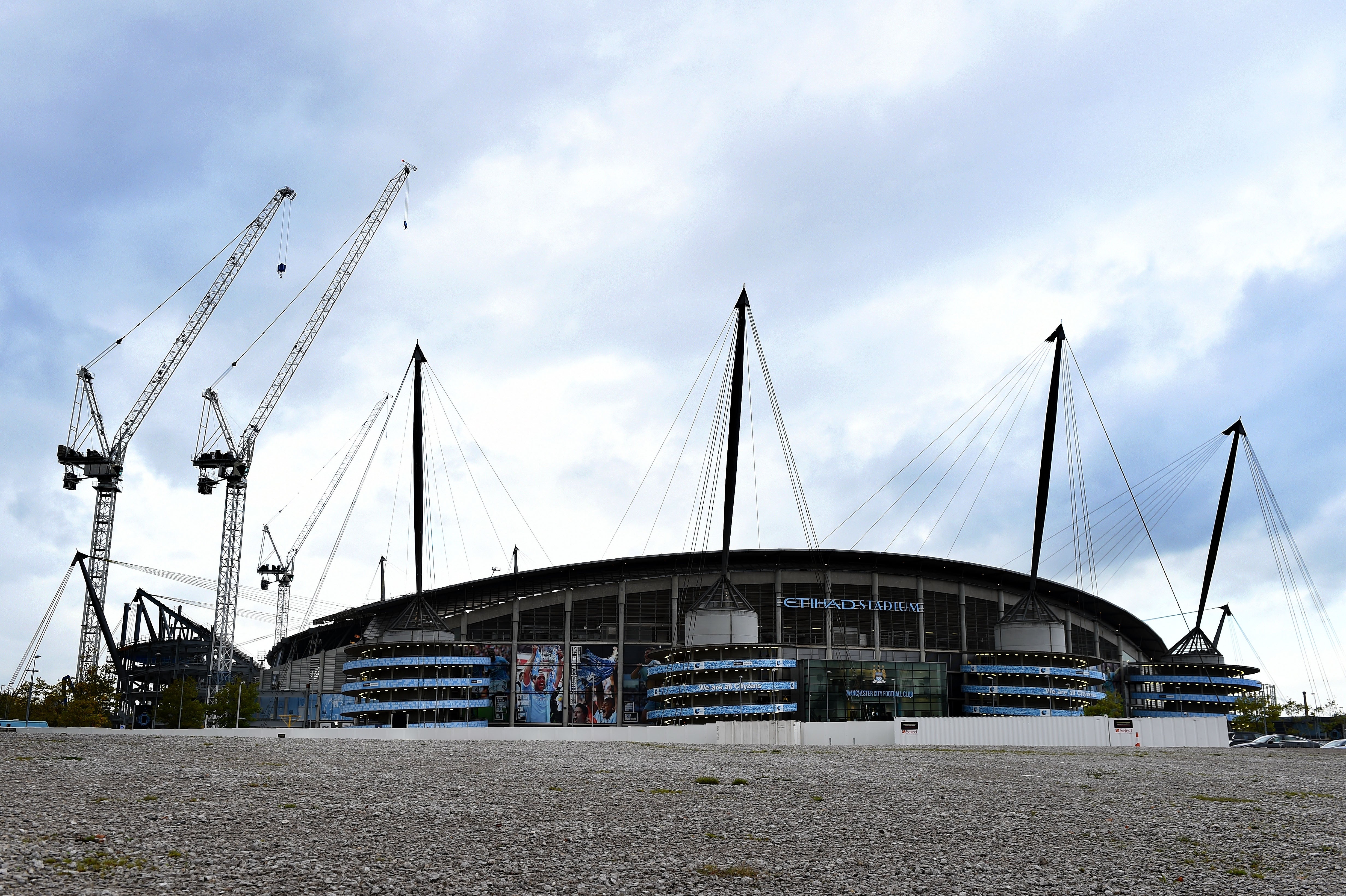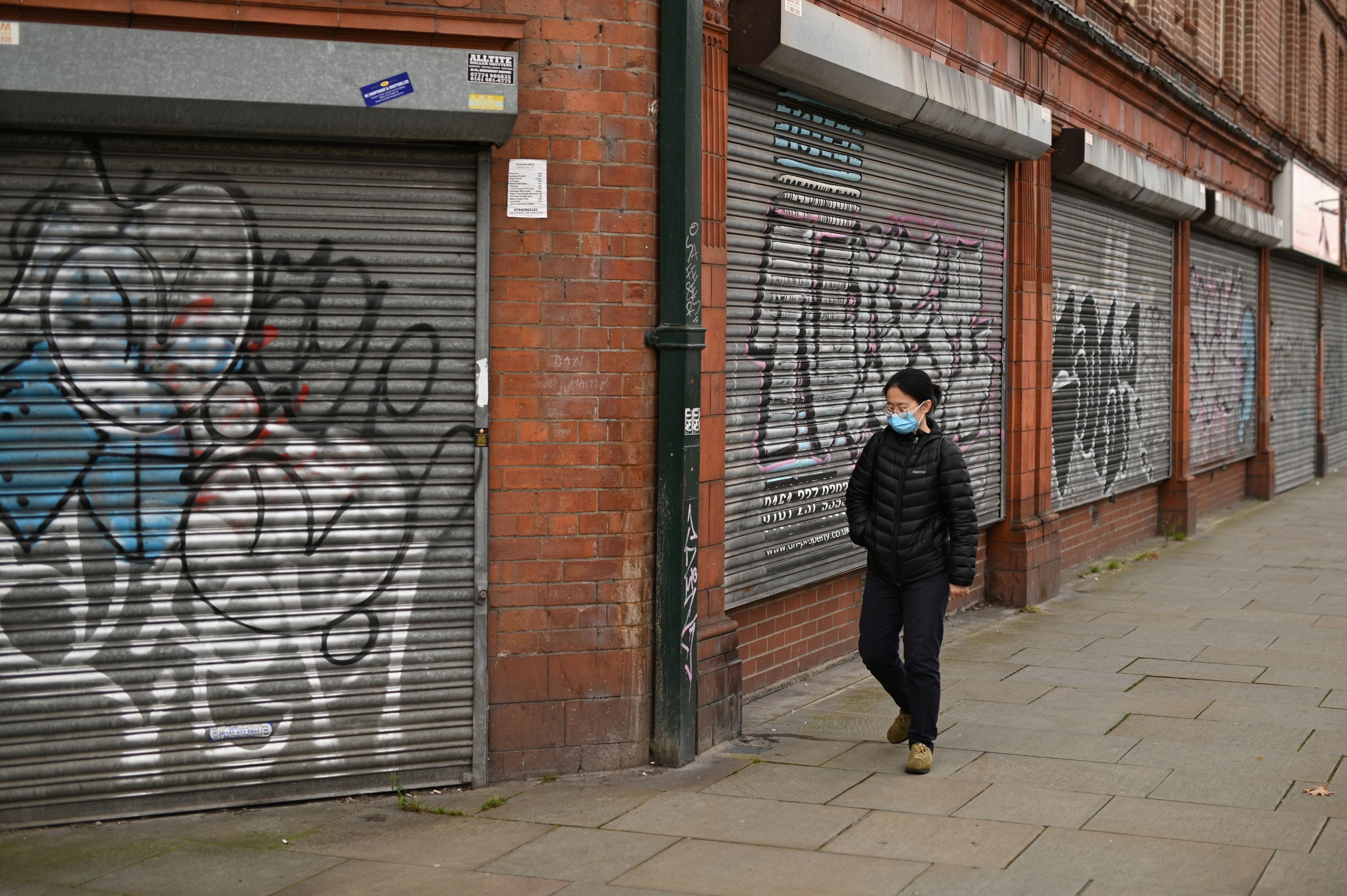Public land sold to Manchester City’s owners on the cheap in ‘sweetheart deal,’ report claims
Researchers ‘unable to identify any income received by the council’ under joint venture with Abu Dhabi United Group

Your support helps us to tell the story
From reproductive rights to climate change to Big Tech, The Independent is on the ground when the story is developing. Whether it's investigating the financials of Elon Musk's pro-Trump PAC or producing our latest documentary, 'The A Word', which shines a light on the American women fighting for reproductive rights, we know how important it is to parse out the facts from the messaging.
At such a critical moment in US history, we need reporters on the ground. Your donation allows us to keep sending journalists to speak to both sides of the story.
The Independent is trusted by Americans across the entire political spectrum. And unlike many other quality news outlets, we choose not to lock Americans out of our reporting and analysis with paywalls. We believe quality journalism should be available to everyone, paid for by those who can afford it.
Your support makes all the difference.Manchester City Council has has been accused of selling huge tracts of public land at discount prices to the Abu Dhabi investment fund that owns the Premier League champions.
The city’s reputation has been put at risk by the authority entering into a “bad deal for the council and its citzens” despite human rights concerns about the United Arab Emirates, according to a new report that raises questions about how the ownership of football clubs is used for political aims that are not beneficial to wider society.
The 65-page report by academics at the University of Sheffield concludes council’s sale of sites to with Manchester City’s owner, Sheikh Mansour, is “instructive” on both sportswashing and “city-washing”. The researchers said the situation should lead to scrutiny of other cities such as Newcastle, where Saudi Arabian investors have invested in Newcastle United Football Club.
One of the most common criticisms of these ownerships is such clubs are used for other purposes, not least the integration of problematic states into the infrastructure of society.
The research primarily covers the Manchester Life partnership, a joint venture that has built 1,468 private apartments in the gentrified Ancoats district. In contrast to the common counter-argument that Abu Dhabi United Group (ADUG) investment has regenerated east Manchester, the report was “unable to identify any income received by the council from its joint venture stakes… despite being exposed to some of the risks of the project”.
It goes on to say that, under the terms of the deal, the council allowed ADUG to hold all land leaseholds, property assets and income rights through subsidiaries registered in “the secrecy jurisdiction of Jersey”.
Most notably, it points out that the venture’s management company paid only £4,000 in corporation tax in 2021 on rental income of £10.1m.
The assessment of the researchers is that Manchester City Council “sold the family silver too cheap” in what they describe as a “sweetheart deal” that “represents a transfer of public wealth to private hands that is difficult to justify as prudent” and is tantamount to “offshoring local democracy”.
The report, Manchester Offshored, reads: “The partnership benefitted from considerable public subsidies in different forms: the below comparable leasehold rates for land transferred offshore for sites in a neighbourhood that had received prior public investment; no affordable housing requirements (whether delivered on- or off-site or negotiated via section 106 financial contributions) and a series of public loans.
“For the authors, this raises concerns about value for money and the protection of public resources, as well as key questions of transparency, accountability and local democracy.
“The researchers estimate the value of the Manchester Life property portfolio to be around £350m and the rental income approximately £10m per annum after VAT. The council does not appear to own any portion of the property assets and does not receive any rental or sales income directly from those assets.”

The research was undertaken by Dr Richard Goulding, Professor Adam Leaver, and Dr Jonathan Silver. The authors argue that, “given the contentious nature of this development, it was all the more important to be open about its economics. From the limited information available in the public domain - this looks like a bad deal for the council and its citizens. If you’re comfortable taking the reputational risk, you should be sure to get the best price.
“Longer-term, it raises questions about what values - and whose values - the city represents. The potential for the relationship to become an ethical, political and economic liability are growing against the backdrop of concerns about the foreign policy and geo-politics of authoritarian regimes. Manchester’s self-image as a vibrant, open, tolerant city may be compromised if the council is seen as aiding elites from authoritarian regimes to generate investment returns that shore up their political and economic power back home.”
The report concludes with arguments for a series of short-term actions to be undertaken by Manchester City Council to open up transparency and accountability, as well as longer-term recommendations to address wider concerns about the issue of international investment into UK cities.
A Manchester City Council spokesperson said: “We reject any suggestion that the sale of the sites involved in the Manchester Life joint venture was not a good deal for the council and the city.
“Land was valued by independent experts, using the nationally accepted ‘red book’ valuation benchmark, and we got the best overall deal we could for each site at a time when there was very little market interest in the area. The value of that deal includes not just the initial receipt for the land but also site-specific overage arrangements, and profit sharing payments. These were always envisaged as longer-term arrangements – the council is due to receive several million pounds in this financial year through the first such payments.”
The council added the Manchester Life developments had “acted as a catalyst, creating confidence and attracting further investment into the area” and had paved the way for new homes and business, generating “significantly more for the city in extra council tax and business rates income”.
Join our commenting forum
Join thought-provoking conversations, follow other Independent readers and see their replies
Comments